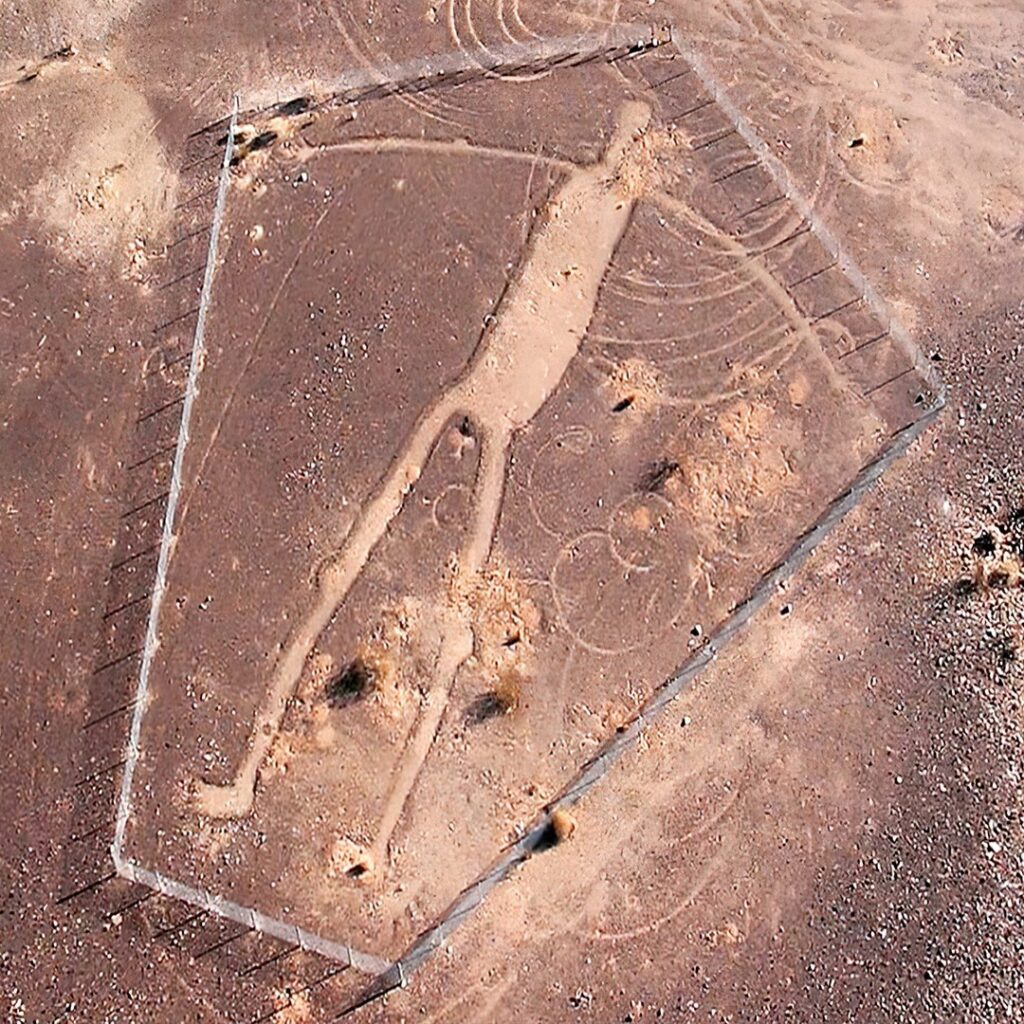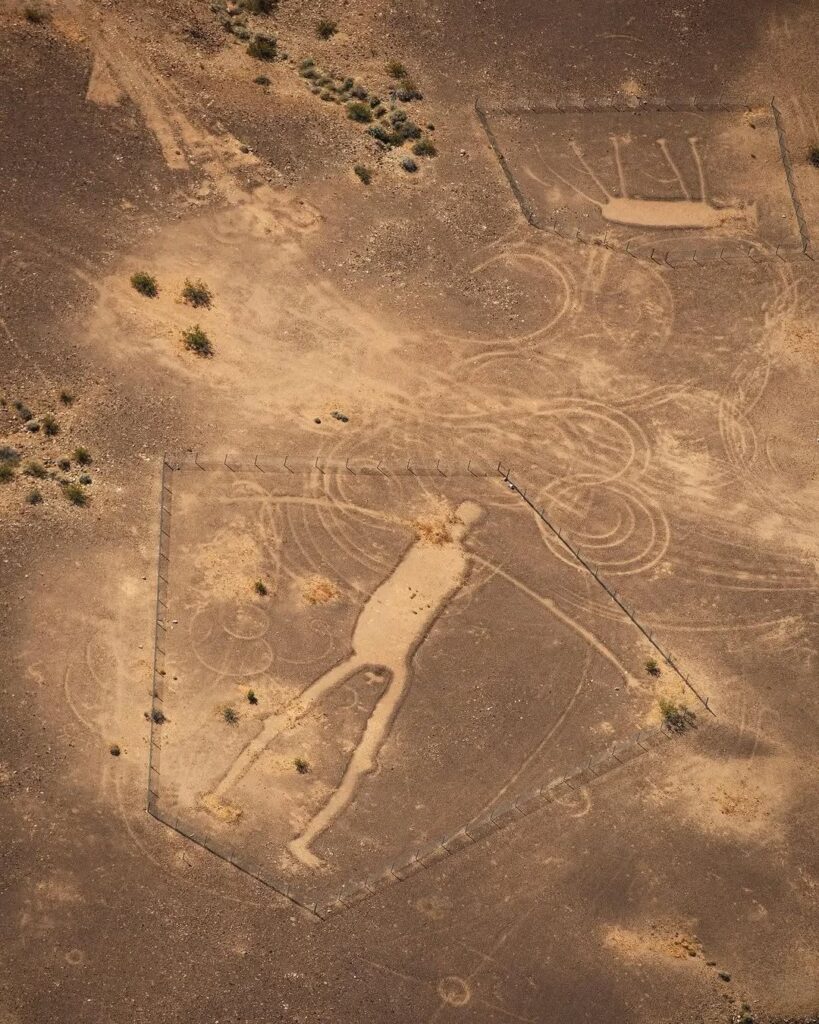Introduction to the Blythe Intaglios
Located in the Colorado Desert near Blythe, California, the Blythe Intaglios are a collection of over 200 ancient geoglyphs featuring figures of humans, animals, and intricate geometric patterns. Covering an area of about 10 square miles (26 km²), these figures were created by clearing away the dark stones on the desert surface to reveal the lighter earth below. As one of the largest and oldest archaeological sites in the United States, the Blythe Intaglios captivate researchers and visitors alike.
The Unique Creation Method of Ancient People
Unlike other popular rock art forms, the Blythe Intaglios were not carved or painted onto surfaces; instead, they were formed by removing the top layer of stones on the ground. This technique created a strong contrast between the dark stones above and the lighter soil beneath, helping preserve these images for thousands of years. One of the most notable figures is a human shape over 170 feet (52 meters) long, so large that it can only be fully seen from above, hinting that ancient people may have considered a view from the sky.

The Timeline and Culture Behind the Blythe Intaglios
The Blythe Intaglios were created between approximately 200 BC and 900 AD by indigenous peoples of the area. Although the exact tribes are uncertain, it’s believed that early Native American cultures in the region, including the Quechan and Mojave people, may have contributed to the creation of these geoglyphs. The scale, precision, and complex design of these giant figures suggest that the creators likely possessed strong knowledge of mathematics, geography, and possibly even basic astronomy.
The Mysterious Purpose of the Blythe Intaglios
1. Religious and Spiritual Significance
Some researchers theorize that these geoglyphs may have held religious or spiritual meaning, serving as sites for important ceremonies. Certain geometric shapes might symbolize natural elements like the sun, water, and earth, which were significant in indigenous beliefs and daily life. The large size and visibility from above could also indicate that the creators sought to communicate with the gods or to perform rituals for protection and blessings.
2. Landmarks for Navigation and Trade
Another theory suggests that the Blythe Intaglios may have served as symbols or important landmarks in the vast desert, aiding in navigation before modern map systems existed. These figures may have guided people through significant areas, supporting a time of flourishing trade routes across the region.
3. Cultural and Social Statements
Some experts believe these geoglyphs may represent a way for ancient people to record their cultural values and pride, perhaps serving as a heritage for future generations. The human and animal figures could embody myths, legends, or national heroes central to their cultural identity and worldview.

The Lasting Importance and Legacy of the Blythe Intaglios
Despite having endured thousands of years, the Blythe Intaglios remain well-preserved, standing as a unique marvel of archaeology and human history. To this day, there are no surviving records or legends from indigenous tribes explaining their origin and purpose, making the Blythe Intaglios one of the greatest unresolved mysteries in archaeology.
The Blythe Intaglios not only showcase ancient creativity but also provide a valuable resource for studying cultural and religious development among North American indigenous communities. These images, visible only from above, are a powerful reminder of the ancient peoples’ unique vision and ingenuity, inspiring future generations in their quest to understand human history.
Conclusion
The Blythe Intaglios are an archaeological treasure filled with mystery and meaning. To archaeologists, these figures are not only symbols of ancient artistry but also keys to exploring the complexities of early cultures. Though their exact purpose remains uncertain, the Blythe Intaglios are a powerful reminder of the wonders of ancient culture and humanity’s fascination with connecting to the world around them.
